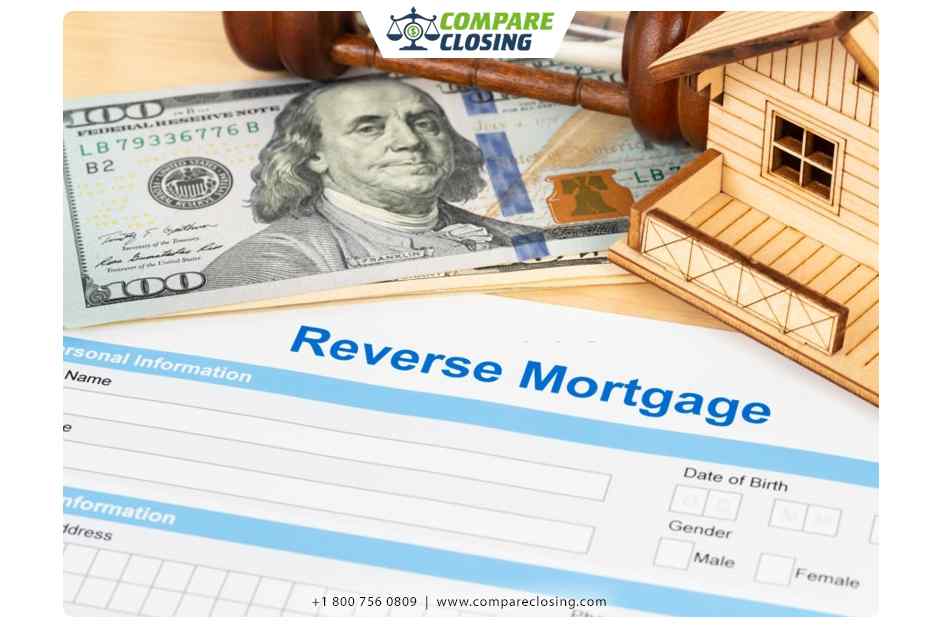Table of Contents
- What Are Netting Escrows & How Does It Work?: The Best Guide - January 2, 2024
- The Secret About Prescriptive Easement: Top Guide 1 Must Know - December 4, 2023
- About Home Equity Loans In Texas And How Can One Obtain It - November 27, 2023
Alternative to Reverse Mortgage
Many people use the equity of their residence as a method to raise cash. A homeowner may use several methods to tap into this process income, but some of them are better than others.
The most popular option is the reverse mortgage, though it may not be the best choice for many homeowners.
So in this article let us look at some alternatives to reverse mortgage.
The Reverse mortgage
A reverse mortgage may be used to convert the equity in your home into cash if you’re 62 or older.
You can borrow against the equity in your home to get a fixed monthly payment or line of credit or a combination of both with this loan.
Repayment is shelved till the time you move out, sell the home, become delinquent on property taxes or insurance, the home falls into disrepair, or till you die.
In any of the above situations, the house is sold and the excess after repayment goes to you or your heirs.
If not done correctly these mortgages can be problematic and if you are married or intend to pass the house on to your beneficiaries then it requires careful attention to the rights of the surviving spouse.
If you end up with an unethical lender that too can be a risk so make your choice carefully and only after you have done your due diligence enter into the deal.
What is the alternative to reverse mortgage?
1. Refinance your existing mortgage
You may be able to refinance your mortgage to lower your monthly payments and free up some cash if you have an existing home loan.
Lowering the interest rate on your mortgage is the best reason why people refinance.
So you can save money over the life of the loan, reduce the size of your monthly payments and build equity in your home faster when you refinance.
If you refinance instead as an alternative to reverse mortgage, then your home and the equity it builds remains an asset for you and your heirs.
2. Take out a home-equity loan
A second mortgage, or home equity loan is another alternative to reverse mortgage which lets you borrow money by leveraging the equity you have in your home.
Just like your primary mortgage, the home equity loan also works the same.
The loan comes to you as a single lump-sum payment, and you cannot draw any additional funds from the house.
For all the tax years up to 2017, the home equity loan interest for amounts up to $100,000 is generally deductible regardless of whether you used the loan for a credit card debt or student loans.
And if the loan was used for qualified purposes like to buy, build or improve the property then including if have any first-mortgage debt you could take tax deductions on up to $1 million.
But because of the new Tax Cuts and Jobs Act, the eligibility for a home equity loan deduction has narrowed.
Unless you use the loan specifically for the qualified purposes mentioned above, you will not be able to deduct home equity loan interest for tax years 2018 to 2025.
There is also a drop in the level at which interest is deductible to loans of $750,000 or less.
The home equity loan usually is fixed-rate loans, that provide security against rising interest rates, resulting in a higher interest rate compared to a home equity line of credit.
Your home remains an asset for you and your heirs just like with refinancing.
As your home acts as collateral, you need to understand that if you default on the loan then the home is at risk of foreclosure.
3. A Home Equity Line of Credit
Another alternative to reverse mortgage is a home equity line of credit (HELOC), which has the option of borrowing up to your approved credit limit on an as-needed basis.
A HELOC is not like a home equity loan, where you pay fixed interest on the entire loan amount whether you’re using the money or not, here the interest is paid only on the amount you actually withdraw.
HELOCs are adjustable loans where your monthly payments will change when the interest rates fluctuate.
The rules for a home equity loan and HELOC about tax-deductibility and qualified purposes are the same. You can retain your home as an asset for you and your heirs with HELOC.
And just like the home equity loan, your home serves as collateral and could be foreclosed if you default on payment.
4. Sell your home or downsize
If you’re ready and able to move from your existing home that is another alternative to reverse mortgage where selling your home gives you access to the equity you have built.
If your residence is larger than you need, and is difficult or expensive to maintain, or has costly property taxes then this option could be appealing.
The earnings can be used to buy a smaller, more affordable home or to rent, and you can save, invest, or spend the extra money.
5. Sell your home to your children
Selling your home to your children is another alternative to a reverse mortgage. One option is a sale-leaseback agreement, where you sell the house to them and then rent it back using the cash from the sale.
As landlords, they get rental income and will be able to take deductions for depreciation, real estate taxes, and maintenance.
The second option is a private reverse mortgage, which works just like a reverse mortgage but the interest and fees stay in the family.
Your children make regular payments to you, and when it’s time to sell the house, they recover their contributions.
To set this type of arrangement is much cheaper than getting a reverse mortgage through a bank, and the home remains an asset for you and your children.
Selling to your children has a by-product of tax and estate planning, so ideally work with a qualified tax specialist or attorney.
Conclusion
The type of loan for seniors aged 62 and above that allows homeowners to convert their home equity into cash income with no monthly mortgage payments is known as a reverse mortgage.
Even if the reverse mortgages are designed to create a retirement income from home equity, they may not be the best solution for everyone.
So there are many alternatives to reverse mortgage, which needs thorough research before making a decision.
Amanda Byford
Amanda Byford has bought and sold many houses in the past fifteen years and is actively managing an income property portfolio consisting of multi-family properties. During the buying and selling of these properties, she has gone through several different mortgage loan transactions. This experience and knowledge have helped her develop an avenue to guide consumers to their best available option by comparing lenders through the Compare Closing business.





